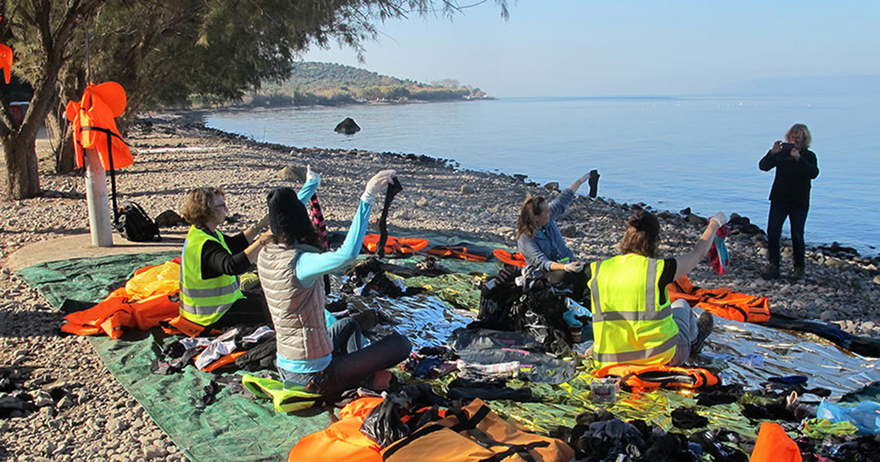Ecovillages Strategies in Areas of Crisis

by Leila Dregger
Natural disasters triggered by climate change are responsible for more than 150,000 deaths every year and force millions of people to abandon their homes and communities to seek refuge elsewhere.
The Intergovernmental Panel on Climate Change (IPCC) predicts that there will be 150 million environmental refugees by 2050. Up to 250 million people in Africa are projected to suffer from water and food insecurity in the 21st century.
Today, as more and more Syrian refugees traverse European borders, we are learning that the roots of their displacement stem from climate change related droughts from 2006 to 2009 that forced up to 1.5 million people from rural regions to migrate to urban areas shortly before the uprisings in 2011. It is in the context of this backdrop of displacement due to conflict, climate change, and economic transitions around the world that spurred several networks connected with Global Ecovillage Network (GEN) to create global initiatives aiming to model and promote ecovillage living, permaculture, and other ecologically sound and integrated approaches in response to crises.
EmerGENcies
The EmerGENcies Protocol is part of a movement that emerged at a global level as one of thousands of initiatives in pursuit of the same goal: to alleviate the suffering of displaced peoples due to war, oppression, weather, or natural disaster. The more we move into humanitarian causes, the more it surprises us how this issue is not only on the front page of newspapers, but is also bringing thousands of citizens to get involved with this work. The surge in emergency situations is increasing, and it is amazing how individuals and civil society organizations are responding.
Through stories of our shared experiences on the ground, the EmerGENcies initiative has started to map the growing community responding to crises such as natural disasters (e.g. earthquakes, typhoons) and conflict in connection with ecovillages, intentional communities, permaculturists, and anyone else keen to the regenerative design process.
RefuGEN
In December 2015, GEN Europe launched the RefuGEN initiative. From December 2015 to June 2016, RefuGEN will have a rotating crew of five representatives as volunteers on the Greek island of Lesvos to be of direct support to refugees taking their first steps in Europe. On the island, the RefuGEN team is working to create a sustainable community in the All Together Village, helping create a camp for refugees who for need to stay longer on Lesvos rather than using it as a transit stop (due to injury, disability, etc.). There, they showcase and teach techniques for social and ecological sustainability that will support refugees in rebuilding their countries and communities after the war.



0 comments
Leave a comment